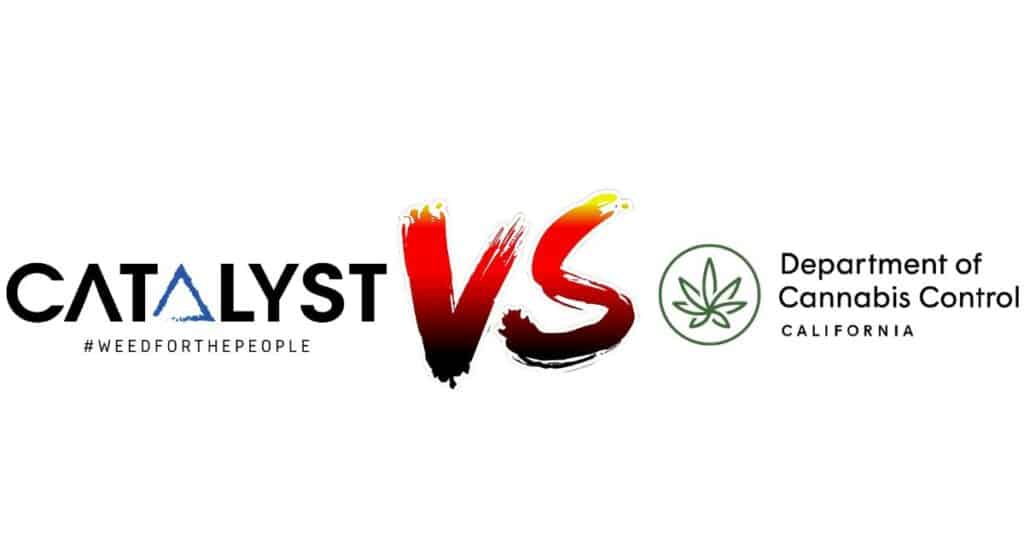On Aug. 2, the 4th Appellate District Court of California made a ruling on a lawsuit between Los Angeles-based HNHPC, the parent company of Catalyst Cannabis Co., and the California Department of Cannabis Control (DCC). At the heart of this legal action is whether or not DCC failed to perform its mandatory duties and/or failed to properly perform discretionary duties under the Medicinal and Adult-Use Cannabis Regulation and Safety Act (MAUCRSA) enforcing proper oversight to flag irregularities in its track-and-trace system that could indicate illicit-market diversion.
This ruling by the appeals court is a significant development for the marijuana industry, as it has potential implications for the transparency and oversight of California’s track-and-trace program. If the lawsuit is successful, it could lead to more information being disclosed from METRC, which administers California’s track-and-trace system, and from the DCC, which is responsible for overseeing it. It could also pave the way for more stringent enforcement of laws against illegal cannabis market practices, meaning that companies could face serious consequences if they are found to be participating in these activities.
What led to the Catalyst lawsuit against DCC and METRC
The lawsuit between Catalyst and the DCC stems from accusations by Catalyst CEO Elliot Lewis about other prominent companies, including cultivation giant Glass House Group. Lewis has openly alleged that some of these companies are allowing legal products to be sold on the illicit market. Glass House responded to these allegations with a defamation lawsuit against Lewis and Catalyst co-founder Damian Martin.
HNHPC then filed a lawsuit against the DCC, claiming that they are not properly monitoring and flagging irregularities in their track-and-trace system, which could be contributing to illicit market diversion. An Orange County trial judge dismissed the original lawsuit, but HNHPC then appealed, and it led to the Aug. 2 ruling from California’s 4th Appellate District Court.

At the heart of this legal action is whether or not DCC is enforcing proper oversight to flag irregularities in its track-and-trace system that could indicate illicit market diversion. The lawsuit alleges that state regulators are “turning a blind eye” to these practices and failing to investigate potential diverters. This ruling by the appeals court is a major development for the marijuana industry, as it has potential implications for the transparency and oversight of California’s track-and-trace program.
Appeal Ruling
The Aug. 2 ruling from California’s 4th Appellate District Court agreed with HNHPC’s argument that the DDC had a duty to ensure that the track-and-trace system was monitored correctly and flagged any irregularities. The court ruled in favor of Catalyst, holding that the company had standing to sue the state agencies for failing to exercise their required “discretionary duties” under California law.
The appeals court’s decision was limited in scope, as it only allowed HNHPC to continue with its legal action against DCC and METRC for failing to monitor their track-and-trace program properly. The ruling does not address the underlying accusations made by Lewis and Catalyst about other companies’ involvement in illicit market activities, which will have to be dealt with in a separate case.
In an emailed statement to MJBizDaily, the DCC’s general counsel, Matthew Lee, said, “will have the opportunity to show that it(DCC) has fulfilled its legal duties—and we look forward to making that showing. And, no matter what happens in this litigation, we will continue our ongoing work to combat the illegal cannabis market.”
We reached out to Elliot at Catalyst for comment, saying, “In a continued push to hold regulators feet to the fire to bring sweeping reforms to the industry Catalyst continues to fight for a better legal marketplace on all fronts.”
Implications if Successful
The implications of this ruling are far-reaching for the cannabis industry in California. If HNHPC is successful in its lawsuit, it could increase oversight and transparency from DCC and METRC. This increased oversight could lead to more stringent enforcement of laws against illegal cannabis market practices, meaning that companies could face serious consequences if they are found to be participating in these activities.
In addition, a successful lawsuit would likely compel DCC and METRC to provide more information about their tracking and tracing system and any other irregularities that indicate illicit market activities. This increased transparency would ensure greater accountability from state regulators and cannabis companies alike, which could help reduce the prevalence of diverting legal products to the illicit market.
Overall, the recent ruling by the 4th Appellate District Court of California is a major development for the marijuana industry, as it has potential implications for oversight and transparency in California’s track-and-trace system. The lawsuit between Catalyst and DDC could result in more scrutiny of cannabis companies engaging in illegal activities like diverting products to the illicit market. This increased oversight could lead to more stringent enforcement of laws against these activities and could compel DCC and METRC to provide more transparency about their tracking and tracing system.
Keep updated on all the latest news and updates in the Cannabis industry here at Beard Bros Pharms by signing up for our Friday Sesh Newsletter here. Always Dank and Never Spam!
















